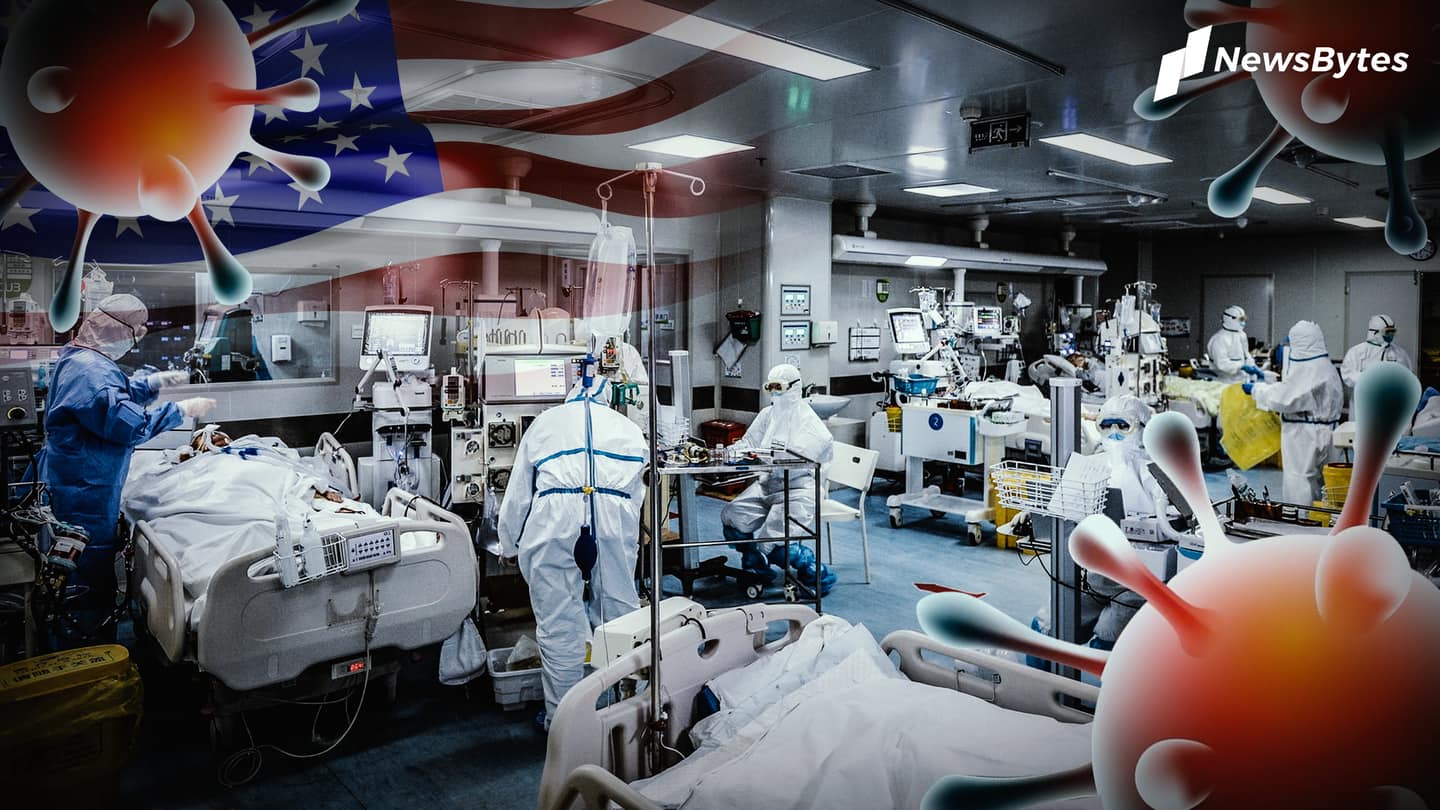
Coronavirus: United States records deadliest day as nearly 4,000 die
What's the story
The United States witnessed its worst day of the coronavirus pandemic on Thursday as almost 4,000 died in the 24-hour period ending at 8:30 pm (local time).
According to John Hopkins University data, 3,998 people died of coronavirus linked complications pushing the death toll to 374,124.
During the same time, 265,246 fresh infections were reported taking the tally of the worst-hit nation to 22,132,045.
California
Over 1,000 died in California in two days
California has been hit the hardest in recent days, with a total of 1,042 deaths being recorded in two days.
Dr. Jeffrey Chien, an emergency room physician at Santa Clara Valley Regional Medical Center, requested people's cooperation to slow down the spread of the virus.
"I'm begging everyone to help us out because we aren't the front line. We're the last line," he stressed.
Prediction
US unlikely to get a respite any time soon
While the vaccination drive started last month, experts believe the US will likely suffer more before it catches a breath.
On December 30, the Centers for Disease Control and Prevention (CDC) predicted that 424,000 Americans would have died by January 23 due to the disease.
In its latest forecast, the body pegged the number of deaths to be between 405,000 and 438,000 by January-end.
Fauci's words
Dr. Fauci predicted the situation won't get better in January
Dr. Anthony Fauci — Director of the National Institute of Allergy and Infectious Diseases — said vaccines are being distributed at a slower pace.
When asked about the uptick in deaths, he admitted that the trend is likely to continue in January, primarily because Americans traveled during the Christmas break.
"We believe things will get worse as we get into January," he told NPR.
Quote
'To control deaths, people need to stick to precautions'
"Hopefully, if we really accelerate our public health measures during that period of time, we'll be able to blunt that acceleration. But that's going to really require people concentrating very, very intensively on doing the kinds of public health measures that we talk about all the time," Dr. Fauci said.
Details
Vaccine roll-out was slow because it started during holiday season
When asked why he feels the vaccine roll-out has been slow, Dr. Fauci replied the start during the holiday season was damaging.
"I think it would be fair to just observe what happens in the next couple of weeks. If we don't catch up on what the original goal was, then we really need to make some changes about what we're doing," he said.
Vaccination
Meanwhile, Surgeon General Adams wants states to aggressively expand vaccination
As per the CDC, over 5.3 million people have been administered the first dose of coronavirus vaccine and some 17.3 million doses were transported to states by Wednesday evening.
US Surgeon General Jerome Adams called on states to aggressively expand inoculation to other phases if "current supply exceeds demand in phase 1a."
The first phase prioritizes healthcare workers and residents of long-term healthcare facilities.